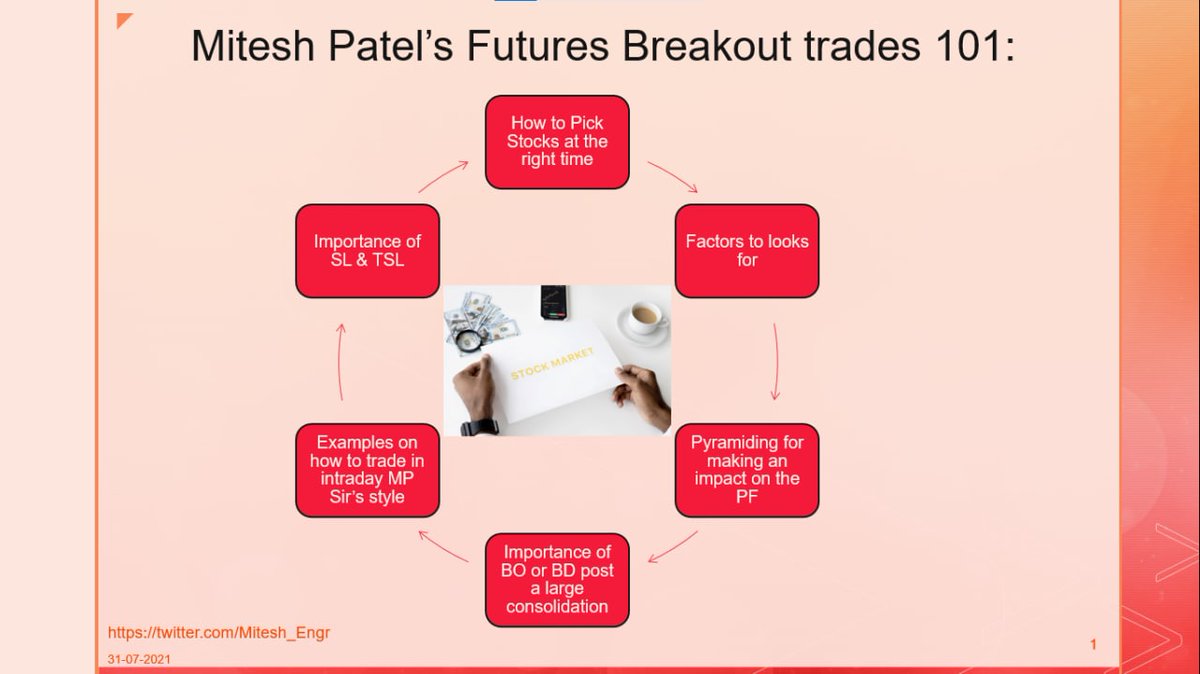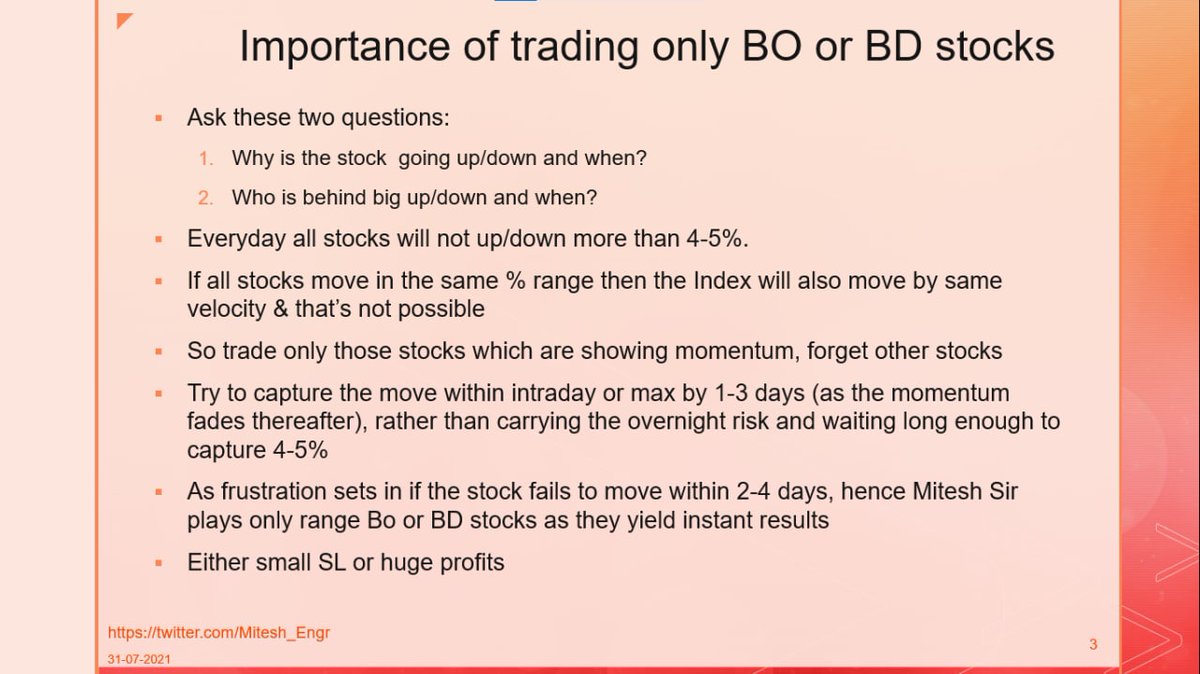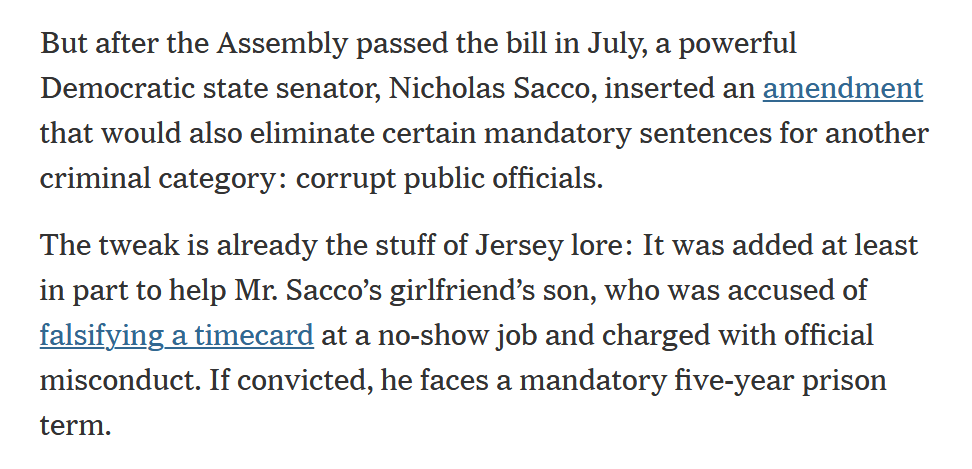
Let’s talk about this story. It discusses a NJ bill that is designed to make sentencing less harsh. The bill is being held up because a lawmaker introduced an amendment that would eliminate the mandatory minimum for one type of corruption.

We've seen the story before, and it sends us a different message.
The "I only realized when" framing tells us that we aren't paying enough attention to harshness & more reform is probably needed.
As someone who researches the statutory language of criminal laws, this law makes me very uncomfortable. The conduct is not well defined--look at that "clearly inherent" language. Yikes!
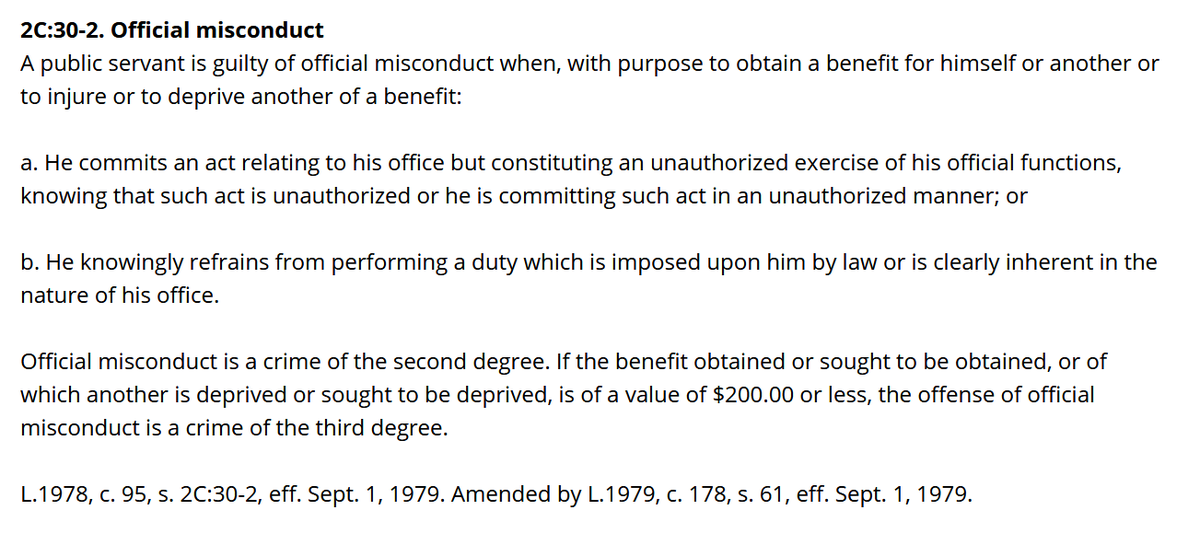
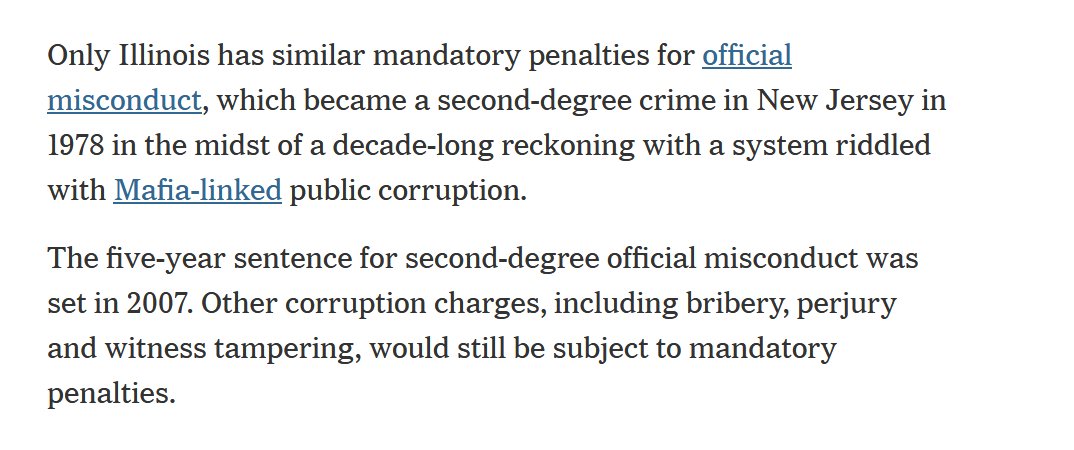
And if we are going to have a relatively vague law, do we want it to carry a 5 year mandatory sentence?

If the implication is supposed to be that judges as appointees can't be trusted, I wish it had mentioned that NJ prosecutors are selected the same way
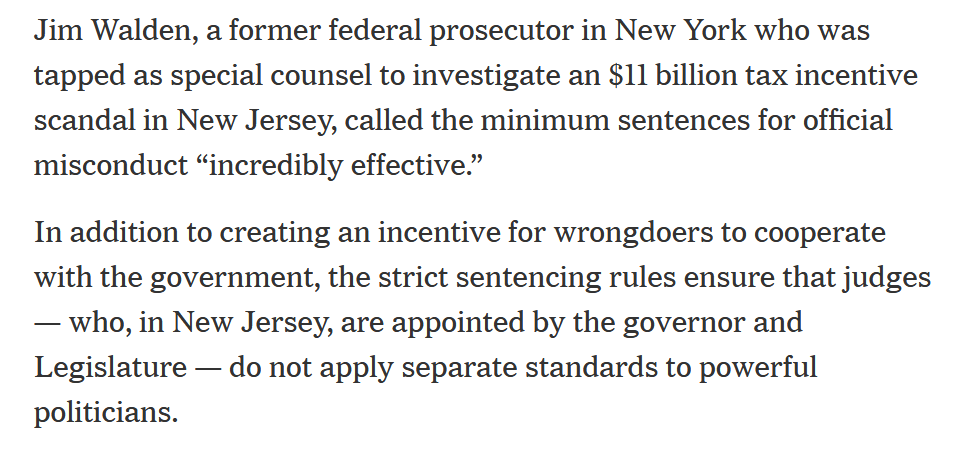
The article never mentions that mandatory minimums are about shifting power over punishment decisions from judges to prosecutors.
But that's exactly what they do.
The argument is deterrence. If you know crime X carries Y mandatory minimum, then you are less likely to commit crime X.

The truth is that human beings don't really think like this. And the idea that people will be less likely to commit crimes because of higher punishments has been debunked lots of times.

Those people get it--mandatory minimums are not a good idea, even if you really don't like a particular type of crime.

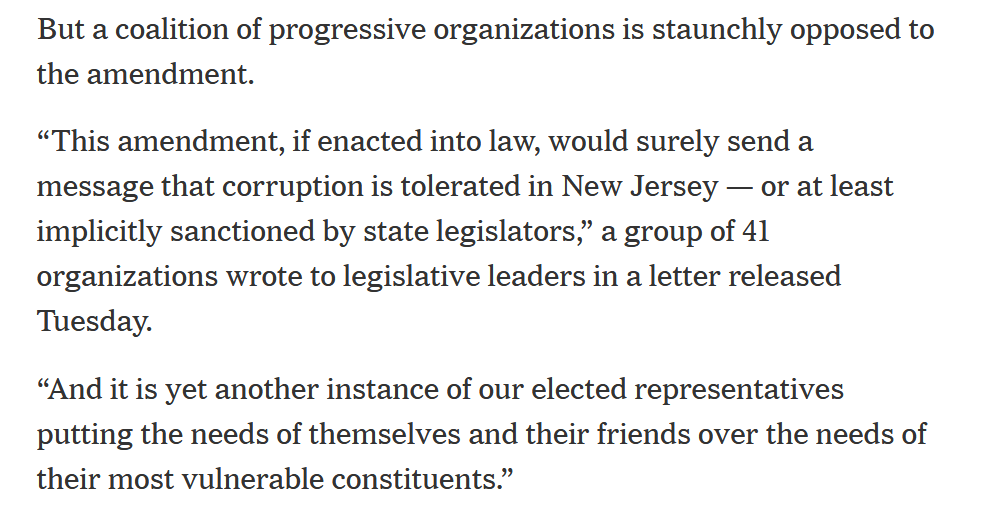
But the idea that removing a mandatory minimum sentence sends the message that a crime is "tolerated" is just silly.
These groups should know better.
This desire for harshness is so prevalent, that some have coined the term "carceral progressivism"
One of the most consequential enforcement decisions is where to look for law breaking.
— Carissa Byrne Hessick (@CBHessick) September 28, 2020
And a policy of prioritizing low level enforcement over high level enforcement is impossible to defend on the merits. https://t.co/ZBNZoUudZF
More from Law
1/ After a good night's sleep, I have a few thoughts on the impending Ripple lawsuit.
Less schadenfreude, more "what now?" https://t.co/a0oTwblBHB

2/ First of all, the USG is going to lose.
I don't even need to read the complaint. They might force a settlement, but they're outclassed on legal.
Remember Ripple engaged former SEC Chair Mary Jo White in a civil matter in 2018. A hint of their
3/ Second, the USG should lose.
The SEC restrictions on non-accredited investors; the ridiculous Howey test; 80 year old securities law like the "40 Act" all need to die in fire. They are un-American and completely outdated.
I hope Ripple wins. (WUT?)
4/ Third, it's incumbent upon industry to self-police and hold the moral high ground.
I give certain individuals A's and others F's, but as a whole, the most powerful people and companies generally take a Swiss neutrality stance on assets.
So we're effectively in this together.
5/ We're "in this together" to draw lines of regulatory demarcation.
XRP as a "security" further hurts the U.S. businesses while global comps will continue to make these markets.
XRP as a security also means other assets will meet the same fate. At least Ripple has $ to fight.
Less schadenfreude, more "what now?" https://t.co/a0oTwblBHB

BREAKING: The @SEC_News intends to sue @ripple over its sale of XRP, alleging the cryptocurrency is an unregistered security according to @bgarlinghouse.@nikhileshde reportshttps://t.co/7Z3KSWk7dn
— CoinDesk (@CoinDesk) December 22, 2020
2/ First of all, the USG is going to lose.
I don't even need to read the complaint. They might force a settlement, but they're outclassed on legal.
Remember Ripple engaged former SEC Chair Mary Jo White in a civil matter in 2018. A hint of their
3/ Second, the USG should lose.
The SEC restrictions on non-accredited investors; the ridiculous Howey test; 80 year old securities law like the "40 Act" all need to die in fire. They are un-American and completely outdated.
I hope Ripple wins. (WUT?)
4/ Third, it's incumbent upon industry to self-police and hold the moral high ground.
I give certain individuals A's and others F's, but as a whole, the most powerful people and companies generally take a Swiss neutrality stance on assets.
So we're effectively in this together.
5/ We're "in this together" to draw lines of regulatory demarcation.
XRP as a "security" further hurts the U.S. businesses while global comps will continue to make these markets.
XRP as a security also means other assets will meet the same fate. At least Ripple has $ to fight.












